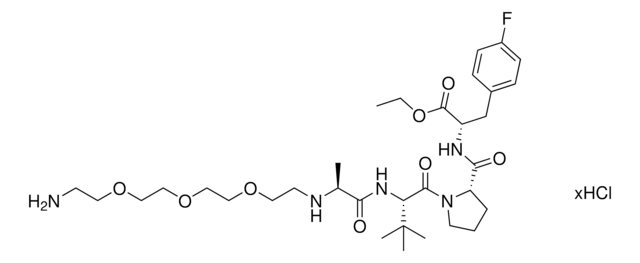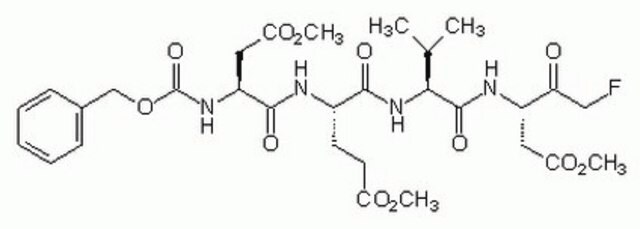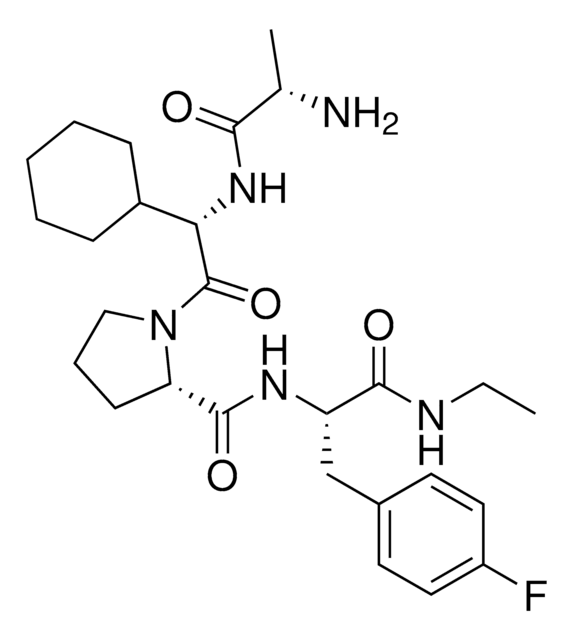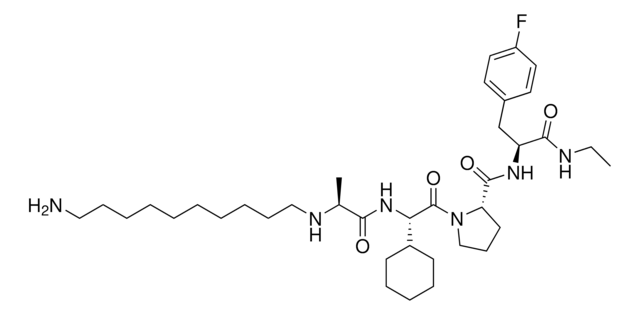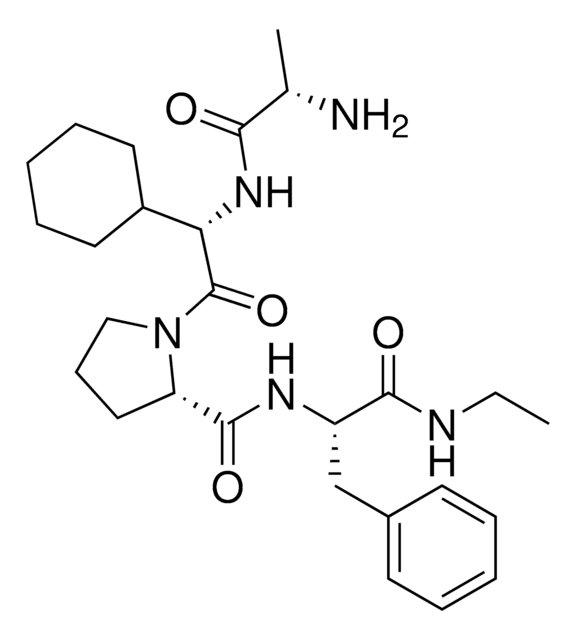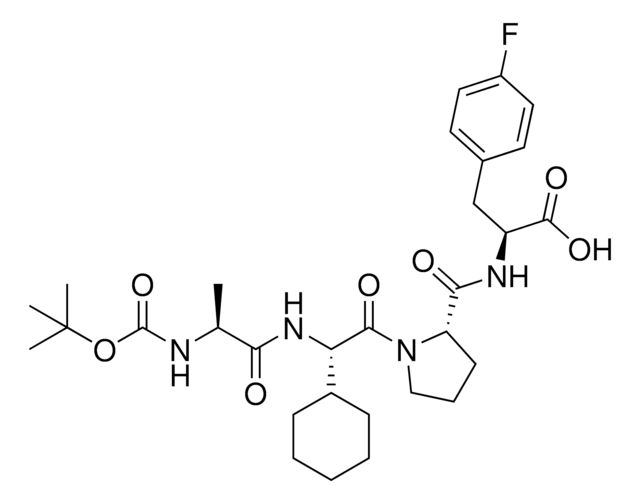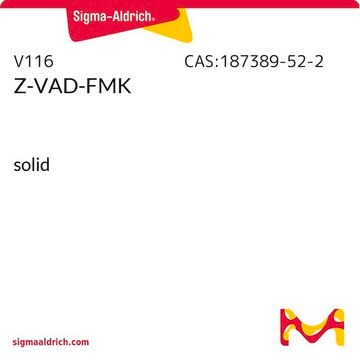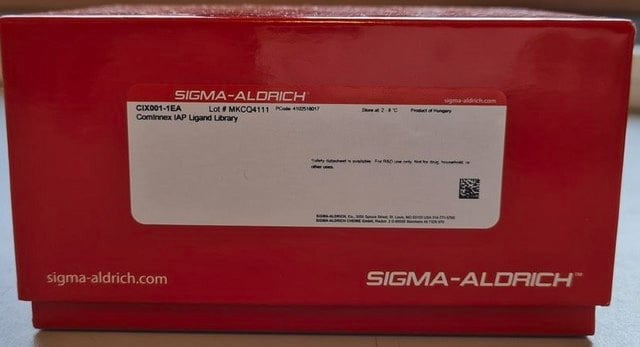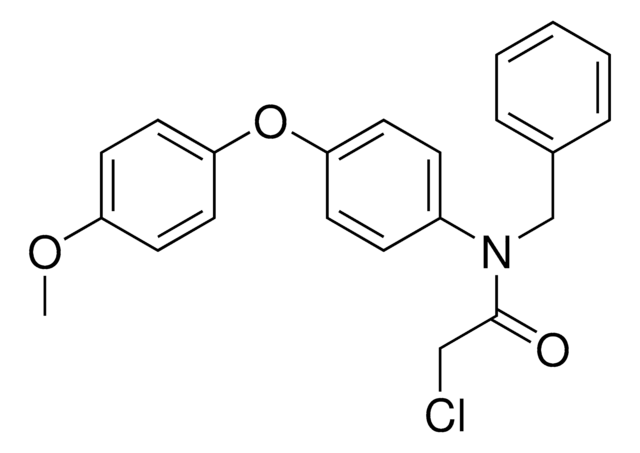917710
A1V1PF2-OEt
≥95%
Sinonimo/i:
AVP ligand, Ethyl (S)-2-((S)-1-((S)-2-((S)-2-aminopropanamido)-3,3-dimethylbutanoyl)pyrrolidine-2-carboxamido)-3-(4-fluorophenyl)propanoate, IAP E3 ligase lead for protein degrader research, SNIPER building block
About This Item
Prodotti consigliati
ligand
A1V1PF2
Livello qualitativo
Saggio
≥95%
Forma fisica
powder
Impiego in reazioni chimiche
reagent type: ligand
Gruppo funzionale
amine
Temperatura di conservazione
2-8°C
Stringa SMILE
N[C@H](C(N[C@H](C(N1CCC[C@H]1C(N[C@H](C(OCC)=O)CC2=CC=C(C=C2)F)=O)=O)C(C)(C)C)=O)C
Categorie correlate
Applicazioni
A1V1PF2-OEt conjugates are also available for degrader synthesis. Browse our full synthesis offering here: Browse our full synthesis offering here for streamlining SNIPER and PROTAC® degrader libraries: Degrader Building Blocks
917427 A1V1PF2-OEt-C6-NH2 hydrochloride
917672 A1V1PF2-OEt-C10-NH2 hydrochloride
917923 A1V1PF2-OEt-PEG1-NH2 hydrochloride
916676 A1V1PF2-OEt-PEG3-NH2 hydrochloride
Technology Spotlight: Degrader Building Blocks with Inhibitor of Apoptosis Protein (IAP) In Silico-Derived Ligands
Altre note
Note legali
Prodotti correlati
Codice della classe di stoccaggio
11 - Combustible Solids
Classe di pericolosità dell'acqua (WGK)
WGK 3
Punto d’infiammabilità (°F)
Not applicable
Punto d’infiammabilità (°C)
Not applicable
Certificati d'analisi (COA)
Cerca il Certificati d'analisi (COA) digitando il numero di lotto/batch corrispondente. I numeri di lotto o di batch sono stampati sull'etichetta dei prodotti dopo la parola ‘Lotto’ o ‘Batch’.
Possiedi già questo prodotto?
I documenti relativi ai prodotti acquistati recentemente sono disponibili nell’Archivio dei documenti.
Articoli
Targeted protein degradation reduces disease-relevant proteins in cells using small molecules, hijacking endogenous proteolysis systems.
Plate of 80 ligands against E3 ligase IAP designed by ComInnex; allows creation of bifunctional targeted protein degraders or molecular glues.
Protein Degrader Building Blocks are a collection of crosslinker-E3 ligand conjugates with a pendant functional group for covalent linkage to a target ligand.
Il team dei nostri ricercatori vanta grande esperienza in tutte le aree della ricerca quali Life Science, scienza dei materiali, sintesi chimica, cromatografia, discipline analitiche, ecc..
Contatta l'Assistenza Tecnica.